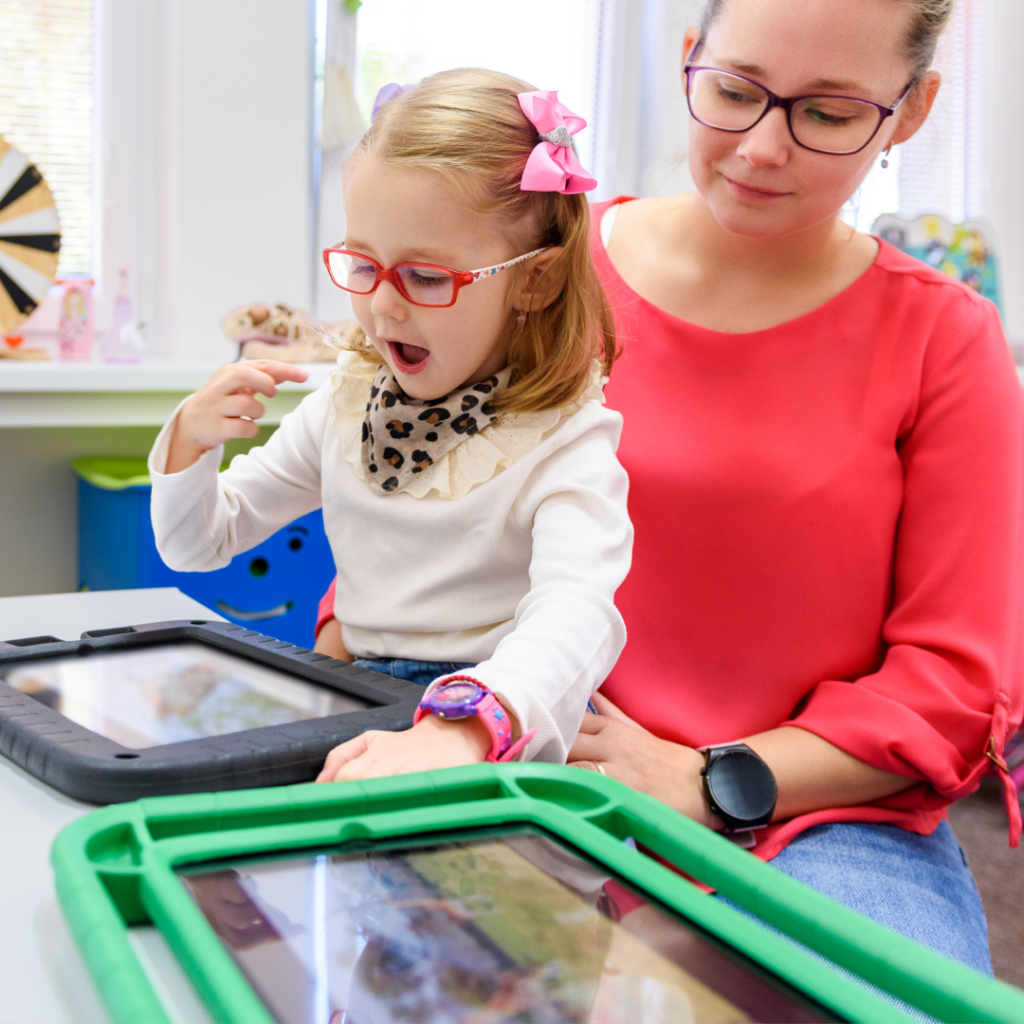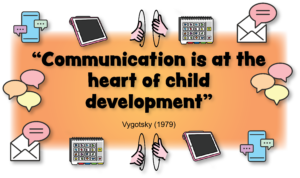Parents and Carers
Speech and Language Delay in Children
If you have concerns about a potential speech delay or other communication challenges with your child, it’s important to seek professional advice. A valuable resource is RaisingChildren.net.au, supported by the Australian Government of Social Services. This site offers a wealth of information to guide you in finding the right support and next steps for your child’s development.
Speech Delays, Communication Difficulties and Key Word Sign
We understand that navigating a child’s speech or language delay can be overwhelming, especially when you’re unsure about the best ways to support their development. Communication is a fundamental human right and plays a crucial role in your child’s overall growth. While verbal communication is one way to express needs and thoughts, it’s not the only way. Ensuring that your child’s needs and wants can be met and their ideas can be shared is what truly matters.
This is where Key Word Sign (KWS) comes in. Key Word Sign is not just about adding signs to words; it’s a powerful tool that enhances understanding and can also support the development of spoken language. Whether you were referred to us by your child’s Speech Therapist (SLP), Occupational Therapist (OT), or discovered us on your own, we’re glad you’re here.
Welcome to Sunshine Sign and Sing! Below, you’ll find information on Key Word Sign and how we can assist you in starting your family’s journey with this effective communication method.
We’re excited to support you and your child in exploring the many ways KWS can help promote both understanding and spoken language.
What is Key Word Sign?
Key Word Sign (KWS), formerly known as Makaton, uses manual signs, facial expressions, and natural gestures alongside spoken words to aid communication for those who are pre-verbal or face communication challenges. It is a widely used method for individuals who cannot rely solely on speech.
In Australia, KWS incorporates signs from Australian Sign Language (Auslan) but differs in that it is used with speech, focusing only on key words. For more information on Key Word Sign, click here.
KWS offers several benefits, including providing an alternative communication method for pre-verbal children, enhancing their understanding of spoken language, and supporting speech development. It also helps reduce meltdowns and frustration by improving communication. For more details on the benefits of Key Word Sign, click here.
Is Key Word Sign right for you child?
There are numerous tools available to support your child’s communication needs, commonly referred to as Augmentative and Alternative Communication (AAC) tools. We recommend combining Key Word Sign (KWS) with other AAC tools to explore which method of communication works best for your child. This is known as a multi-modal approach, and it acknowledges that your child may switch between different forms of AAC based on various factors such as their age, emotional state, or current abilities.



Before adopting Key Word Sign, it is important to consider a few factors:
- Purpose of Key Word Sign:
Is KWS a temporary support until spoken language develops, or will it serve as a long-term replacement? If KWS may become a replacement, it might be worth considering if Auslan could be a more suitable option depending on your child’s abilities. - Fine Motor Skills:
Does your child have the fine motor skills required to use Key Word Sign effectively? Some AAC methods, such as symbol or picture-based systems, don’t rely on fine motor abilities and may be easier for your child to use. - Sign Retention and Learning:
Will your child be able to learn and remember the signs? An advantage of symbol-based AAC tools is that they do not require your child to recall specific signs. - Community Support:
How likely is it that your child’s community, such as family members, educators, or peers, will learn the signs to communicate with your child? We offer training and resources to help overcome this potential barrier, ensuring that those around your child are equipped to engage with them through Key Word Sign. - Consistency with Existing AAC Tools:
Are there other AAC tools currently being used by your child’s Early Learning Service, Kindergarten, or School? Many of our resources incorporate Boardmaker symbols to complement existing AAC systems, providing consistency in communication across different environments.
For more information on how we can support your child’s communication journey with Key Word Sign and other AAC tools, explore our training (below) and resources.
How can we help?
We are here to support you and your family as you embark on your Key Word Sign journey, offering a range of tailored resources and services designed to make communication more accessible, effective, and enjoyable. Our aim is to empower your child to express themselves with confidence while providing you with the tools and knowledge to integrate Key Word Sign naturally into your daily lives.
Personalised Training for Your Family & Communication Partners
Our Key Word Sign training is flexible and personalised to meet the unique needs of your child and family. We take a child-led approach, ensuring that by the end of our 5-week programme, your family will have a personalised signing vocabulary that resonates with your child’s communication needs. Our programme covers everything you need to feel confident in using Key Word Sign, including:
- How to sign and introduce new signs in a natural, stress-free way.
- Where to find new signs to continue expanding your child’s vocabulary.
- Techniques for signing during play, routines, and everyday activities, so Key Word Sign becomes a natural part of your interactions.
- How to create a signing-friendly environment at home and in educational settings, ensuring your child is supported across all areas of their life.
We also provide training for other communication partners, such as extended family members, carers, teachers, and therapists, ensuring everyone in your child’s life is aligned. This holistic approach ensures consistency and creates a solid support system for your child. Each programme is fully customised to your family’s needs, and we are happy to answer any questions or provide further information about our personalised training—just contact us to learn more.
Getting Started
If you’re just getting started with Key Word Sign, be sure to check out our ‘Getting Started’ page for helpful tips and resources to kick off your family’s journey. Whether you’re just beginning or looking to expand your child’s communication skills, we are here to support you every step of the way.
Resources to Create a Signing Environment
We offer a variety of practical and engaging resources to help you create a signing-friendly environment at home, in Early Learning settings, and in schools. These include:
- Themed Posters: Visual aids that reinforce the use of signs in relevant environments, such as home, school, or play settings.
- Flashcards: Portable and easy-to-use cards that can be incorporated into daily routines, helping your child practise and remember signs.
- Story Books: Engaging stories that come with access to videos demonstrating the signs used in the book, making it easy for your child to follow along and learn through storytelling.
- Song & Sign Books: These books, accompanied by music tracks, provide a fun and interactive way to learn Key Word Sign, especially for younger children who enjoy singing and movement.
- Baby Sign App: Our app gives you access to a library of signs at your fingertips, making it easy to continue your child’s learning on the go.
Start Your Journey with Us
For more information about our personalised training programmes or to explore our full range of resources, please contact us. Together, we can help your child reach their communication potential.
Other Support
If you suspect your child needs some extra support we recommend the following local businesses:
• Occupational Therapists – Little TheraPeas
• Speech Therapists – Hello Sunshine Therapy
• Physiotherapists – Enhanced Living
• Disability Support – Cerge

